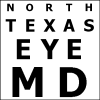Allergies & the Eyes
Approximately 22 million people in the United States suffer from seasonal itchy, swollen, red eyes. Airborne allergens, such as house dust, animal dander, and mold, constantly bombard the eyes and can cause ocular allergies at any time. But when spring rolls around and the plant pollen starts flying, it seems as if almost everyone starts crying.
Seasonal allergic conjunctivitis, or hay fever, is the most common allergic eye problem, especially in the Dallas/Ft Worth area where various allergens are present in the air year-round. Avoiding known allergens can help prevent symptoms, although this is often difficult to do in practice. Staying away from outdoor pollen may be impossible, but remaining indoors in the morning when the outdoor pollen levels are highest may help control symptoms. If you are allergic to house dust, open the windows and keep household filters clean. Applying cool compresses to the eyes helps decrease swelling and itching. Artificial tears dilute the allergens and form a protective barrier over the surface of the eye. Avoid rubbing the eyes, which makes symptoms worse. Antihistamine and decongestant eyedrops and sprays can soothe your irritated eyes and nose.
Contact dermatitis is an allergic reaction of the eyes and eyelids caused by direct contact of an allergen. The most common culprits are fragrances and dyes in detergents, and moisturizers and make-up applied to the face (even if it is not applied near the eyes), and preservatives used in eyedrops. Eliminating the inciting allergen is curative, although pinpointing the exact cause is often difficult.
If allergies are a problem, please call for an appointment. There are several safe and effective anti-allergy drops which may be used. In some cases, oral medications are needed. We can also make sure that your symptoms are not being caused by a more serious problem.
